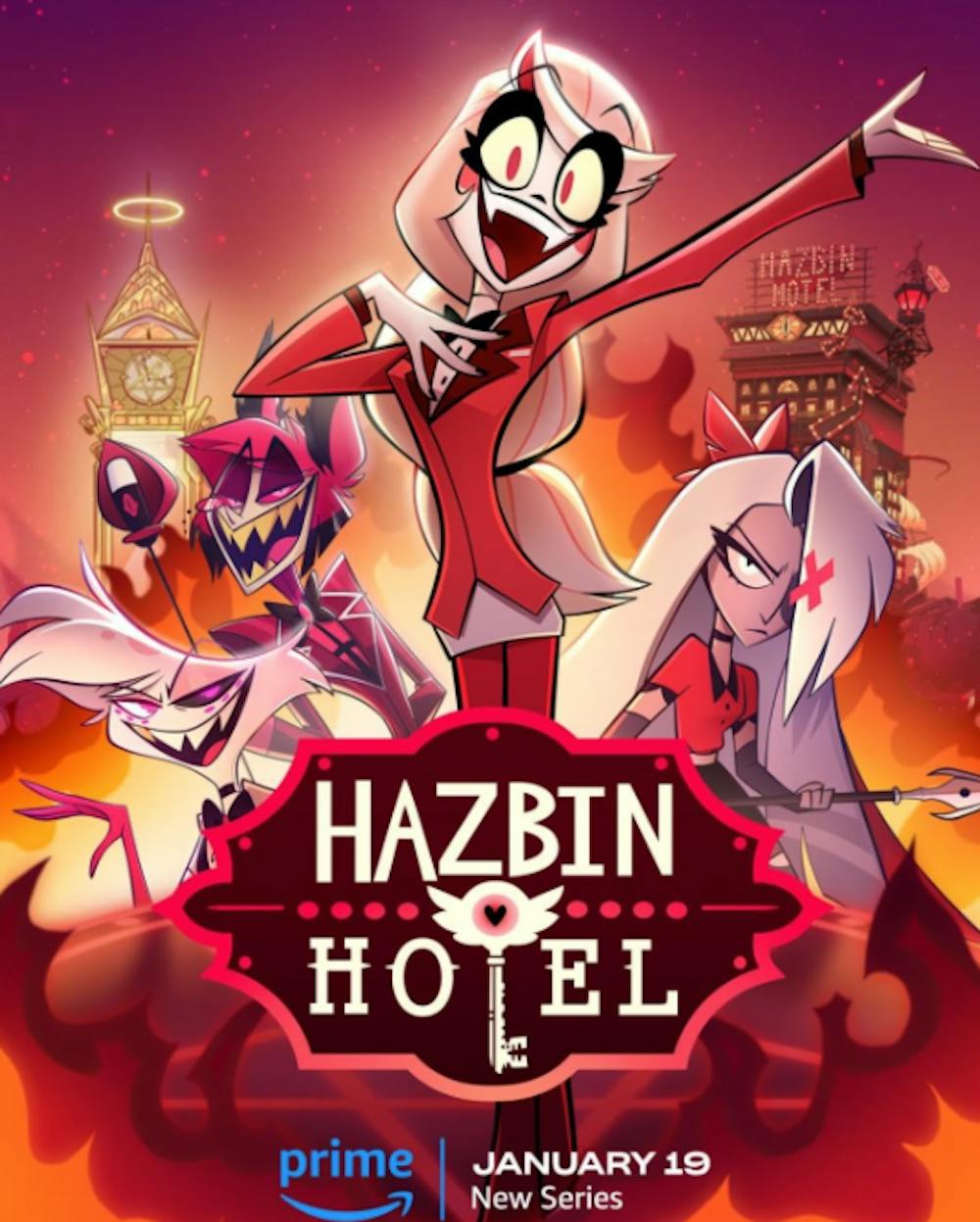By Lake DiStefano
Staff Writer
In 2020, a pilot for a proposed animated series, by the name of “Hazbin Hotel,” was uploaded to Youtube. It instantly went viral, and now sits at a staggering 97 million views. Upon watching the pilot, it is not hard to see why.
The pilot depicts the story of Lucifer’s daughter, Charlie, who dreams of a hotel dedicated to redeeming the sinners of hell in hopes they can make it into heaven. The premise has a ton of leeway, the characters have memorable designs and the animation is far from amateur looking.
The pilot had laid the groundwork, and if properly developed, would become a great show. It was an indie project on par with some of the biggest names in animation.
This led to it being picked up by Amazon Prime, with its eight episodes all airing on the streaming platform. It is considered by many to be a triumph in indie animation, reaching an almost mythological status among other aspiring animators.
“Hazbin Hotel” means a lot of things to a lot of people. Yet however good it is at being a symbol, at the center lies the show itself — the one about Lucifer’s daughter and all the residents of her therapeutic hotel.
After watching all eight episodes of its first season, despite the promising pilot, I regretfully must report that while it is a significant milestone in indie animation, it is not nearly as successful at being a good show.
Comparing its core episodes to the pilot, the show has a recurring problem of being needlessly edgy. In the pilot, I had assumed that the more lackluster writing would be refined in time for the main episodes — this including the show’s reliance on sex jokes.
This is not the case, as the show’s humor hardly ever deviates from poking fun at sex and sexuality as a whole. The jokes about how gay a character is loses a certain punch when you’re on the finale episode, and it has the exact same set-up as one used in the pilot.
Beyond that, the show’s tone rests in an uneasy position between the reality of how terrible a hell would be, and a joking dramatization often seen in Broadway productions. There’s a certain awkwardness in how the show presents its version of hell, where we as a viewer are meant to accept that certain evil characters aren’t meant to be taken seriously, while others deathly so.
These minor issues, however, pale in the face of the show’s mortal sin: its pacing.
“Hazbin Hotel” has some incredible ideas, but they’re only ever just that–ideas. The pacing in this show is laughably bad. No concept presented is given the run-time to breathe within the plot.
Character arcs are introduced, only to be dropped in favor of others, which will eventually suffer the same fate. Character deaths feel uneventful, as we are never given enough time to care about them. The few storylines that are haphazardly given resolutions, come across as shadows of what they could’ve been.
This even extends to the established relationships in the show. Vaggie and Charlie, who are stated to have been girlfriends for multiple years before the start of the show, have little to no on-screen chemistry.
This leads into the show’s musical numbers, where despite the show’s stacked voice cast, many of them don’t land on the simple basis that these emotional beats are not earned. Moments like these have to be built up to, which is impossible when the show has too many ideas it wants to play with.
So much of this show can be described as wasted potential.
One can surmise that they were only promised the eight episodes upfront, and due to this, they attempted to cram all their ideas in fear the show would not get renewed. This seems to have done more harm than good though, as instead of only eight great episodes, they have eight decent ones.
That being said, the show was far from a terrible watch. The animation was stellar with the added budget, and the voice cast is incredible all around. They only really fell at the last hurdle — the connective tissue of the show’s writing.
“Hazbin Hotel” is many things, but ultimately, it feels shallow in comparison to not only its legacy, but also the potential its plot promises yet never delivers on.







